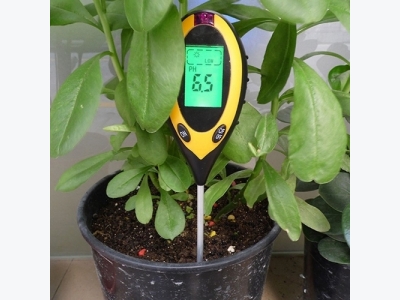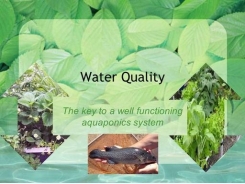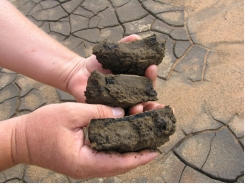Soil pH Importance in Agriculture

In this article we talk about soil pH importance, what is and how to modify its value.
In fact, one of the most important parameters to calculate before growing a specific plant in a specific soil is the PH value, i.e. the measurement of the acidity or alkalinity of the soil, which is defined as the negative logarithm ( base 10 ) of the activity of hydronium ions ( H+ or, more precisely, H3O+aq ) in a solution. In fact, depending on their peculiarities, different plants need different pHs.
Soil pH Importance – Soil pH strongly influences microbiological activity, mineral elements availability and, ultimately, the adaptability of the different plant species. The most of bacteria – from which nitrogen fixation, nitrification, some organic matter decomposition process depend – prefer a sub-acid or slightly alkaline environment ( pH 6.8-7.2 ); the deviation from such conditions negatively affect both nutritive elements availability and humidification process. Mushrooms prefer an acid environment and with such conditions they ensure the demolition of organic compounds. Actinomycetes develop mainly in slightly alkaline dry, loose ( and thus rich in oxygen ) soils ( pH 7- 7.5 ), because – with such conditions – they are able to compensate for the lack of activity of mushrooms and other bacteria, in drought periods.
Soil pH Importance – Soil pH influences the solubility of various mineral elements causing their accumulation in forms more or less available for plants, as well as their leaching to deeper layers. Thus, knowing pH value gives useful indications about mineral elements availability in the soil, deriving both from origin minerals decomposition and any spread fertilizers. The most known and important case for soil fertility is the one of phosphorus; in the soil it can be found in the form of poorly soluble phosphates.
Their solubility depends on pH: if the reaction is acid it means there are iron and aluminum phosphates, the availability of which increases as pH increases; instead if the reaction is alkaline there are calcium phosphates, the availability of which decreases as pH increases. The result is a higher solubility of phosphates ( and thus of phosphorus ) for pH values near neutrality.
Soil pH Importance – The most of horticultural crops can easily grow with a sub-acid pH ( between 6 and 6.7 ) or with a neutral one. Yet there exist garden plants and some vegetables too with different needs; for this reason it could be better to “modify” soil pH in order to adapt it to the kind of crop, especially if we talk about pot crops.
Soil pH Importance – Soils which have a pH between 6.8 and 7.2 is considered neutral and is the best soil for the most of horticultural crops. In fact many microelements can be absorbed optimally in this type of soil, while this does not happen in strongly acid or strongly alkaline ones, except for few microelements

Soil pH Scale.
Soil pH Importance – Soils which have an acid pH – between 5.4 and 5.9 – are generally not very fertile; such conditions usually also inhibit bacterial and fungal activity, which are fundamental to decompose organic substances. Moreover, elements like calcium (or) magnesium are insoluble and thus unusable by all plants. Other elements scarcely present in an acid soil are boron and phosphorus. Instead, elements highly available and soluble are aluminum, iron and manganese which, if present in too large quantity, could lead to nutritional imbalances and plants problems.
Instead, a soil with an alkaline pH – between 8.2 and 8.8 – is usually rich in limestone; generally such soils are clayey. In alkaline soils insoluble elements ( the ones not available for plants ) are iron, sulfur and potassium. Limestone, similarly to what happens in acid soils, slows microbial and microorganisms activity, which help to decompose organic matter.
In the case of an excessive soil acidity, we can try to remedy correcting it administering some substances with an alkaline pH, like – for example – limestone rocks, calcium carbonate and marl.
The correction with addition of quicklime could be of particular interest. To do it, we need to spread in our vegetable garden small heaps of this substance and then let them fade a little bit. Afterwards we need to uniformly spread this substance on the soil and then bury it.
Besides positively modify pH in too acid soils, lime also brings other benefits.
In fact, it stimulates organic matter mobilization helping to speed up mineralization process with a resulting increase of productions. Yet, on the other hand, it quickens the depletion of soil’s organic reserves.
Soil pH Importance – Instead if we need to reduce the pH in a too alkaline soil, we can try to remedy administering both organic substances and gypsum. Among the organic substances, manure can be successfully used to this purpose, thanks to its slightly acid pH, as well as other benefits that usually brings to soils. Correcting alkaline soils through gypsum, namely calcium sulphate, is often suggested because this substance – if added in a solution – brings sulfuric acid ions . We need to keep in mind that – due to its calcium content – gypsum shows effects similar to lime on soils, namely it quickens organic matter mineralization, increasing productions, but also quickening the depletion of organic reserves
Soil pH Importance – For Cactaceae family it is usually suggested a soil with a pH near 6.5; to reduce pH in a quick and DIY way we can prepare a solution with water and cooking vinegar, using a teaspoon vinegar for 1 liter of water. In alternative we can use: lemon or orange juice, beer, wine or tomatoes. All of these things have an acid pH, so they can be successfully used for this purpose, as well as coffee grounds, which can be left to dry and then directly mixed to the compound.
Related news
Tools

Phối trộn thức ăn chăn nuôi

Pha dung dịch thủy canh

Định mức cho tôm ăn

Phối trộn phân bón NPK

Xác định tỷ lệ tôm sống

Chuyển đổi đơn vị phân bón

Xác định công suất sục khí

Chuyển đổi đơn vị tôm

Tính diện tích nhà kính

Tính thể tích ao




 UAE to grow food and fuel in desert…
UAE to grow food and fuel in desert…  How decomposition of organic matter impacts aquaculture ponds
How decomposition of organic matter impacts aquaculture ponds